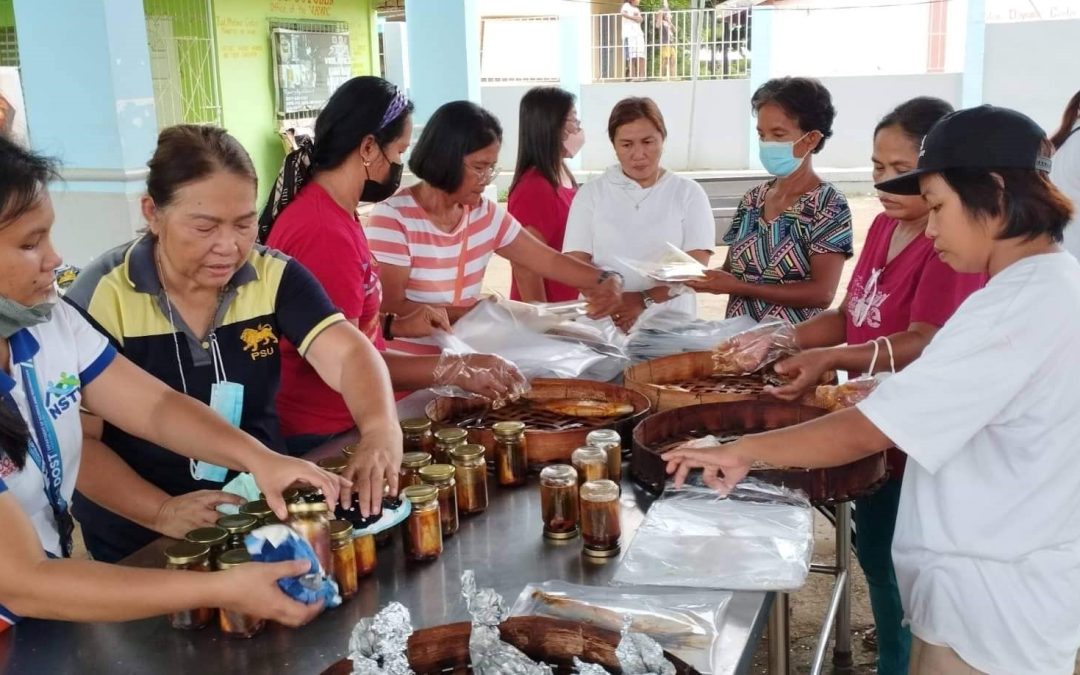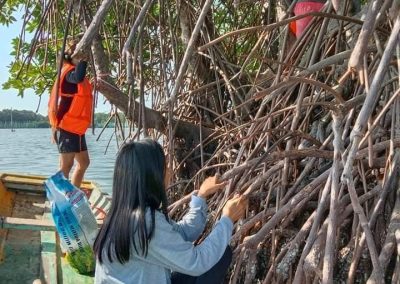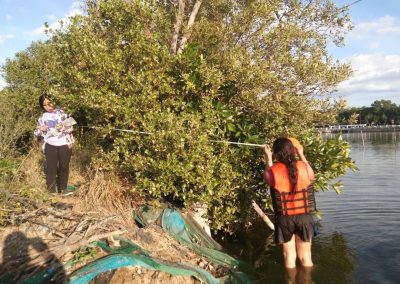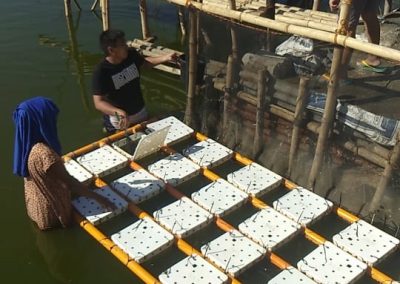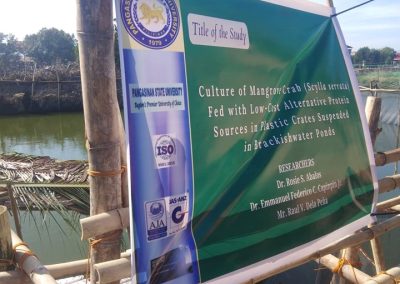Perfectly nestled in the heart of a coastal town is Pangasinan State University’s Binmaley Campus which boasts of vast water resources such as estuarine, brackishwater river and marine species.
Binmaley waters are used as fishing ground of fisher folks and as culture area for oysters. It is also known for its pond culture of milkfish (locally known as bangus) and other aquaculture species such tilapia, siganids, mangrove crabs, shrimps, oysters and mudclams.
With these resources, the campus, through its Extension Services Unit, conducts extension services to its clients that include the fisherfolks, housewives, cooperatives and students.
Dr. Sotero Aban, head of the Center for Hydrology, Aquamarine, Natural and Ocean Sciences (CHANOS) said In-depth training on recent technology on the culture of milkfish, tilapia, catfish, siganids, giant freshwater prawn, mangrove crab and oysters are regularly conducted.
“The training-seminar does not only focus on the biology and culture of the species but also on proper nutrition and feeding management, water quality management and fish health management and practices which are very important in maintaining balance in the aquatic environment and in sustaining productivity of aquaculture species and conserving biodiversity,” Dr. Aban explained.
Endowed with facilities and expertise, PSU broadened its processing activities for its signature product – FISH. These include fish drying, smoking, bottling, fermenting and deboning.
Conscious of the support to conserve and sustain the utilization of marine resources, PSU ensures that waste products could become useful again through fish and fishery product development.
With modern technology as aided by the Department of Science and Technology, bones of milkfish are used to produce ‘polvoron’ and other fish products such as fish longganiza, embutido, patties, shanghai, lumpia and crackers.
Campus extension coordinator Dr. Emmanuel Capinpin said these products have attracted considerable attention as sources of proteins, vitamins, minerals and fats.
The research does not end there!
Further study on the waste products from fish deboning and fish filleting were also studied for utilization. The waste products (offals) of milkfish from deboning, tilapia and tuna from filleting were developed into fish fertilizers which were used in the growing and fertilization of cash crops such as pechay, eggplants, corn and ornamental plants.
The PSU Community in one voice believes that the utilization of fish wastes from processing and deboning is one way of reducing or eliminating solid waste into the aquatic ecosystem.
Thus, PSU encourages the full compliance in the promotion, conservation and sustainable utilization of marine resources in all aspects of the program and the institution.
